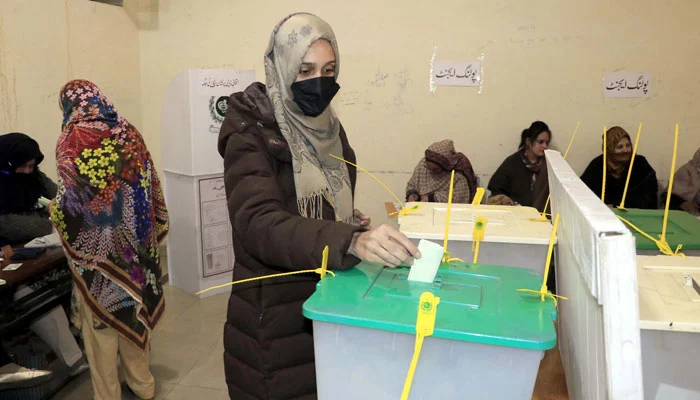By-Elections
ISLAMABAD: The Free and Fair Election Network (Fafen) highlighted concerns regarding low voter turnout, procedural irregularities, and constraints on independent monitoring in its recent report covering the April 21 elections across 22 national and provincial assembly constituencies.
Despite these issues, the report acknowledged improvements in results management and a reduction in the number of invalidated ballots.
Fafen observed that while most polling stations adhered to legal requirements and procedures in setting up, identifying voters, and counting votes, approximately 14% of them reported procedural lapses related to ballot issuance by Assistant Presiding Officers (APOs).
Furthermore, Fafen observers faced restrictions from security personnel or presiding officers at 19 polling stations in the constituencies of PP-36 Wazirabad and PP-22 Chakwal-cum-Talagang, impacting the transparency of the electoral process.
The voter turnout was notably lower than during the February 8 general elections, with only 36% of registered voters participating, marking a 9% decrease.
This decline was more pronounced among women voters, who saw a 12% drop in participation. Despite an increase of 75,640 in the registered voter count since the general elections, the turnout issues persisted.
Lahore’s five constituencies experienced the most significant drops, with PP-147 recording a mere 14% turnout compared to 35% previously. Conversely, constituencies in Gujrat and Khuzdar saw increases in voter participation compared to their general election performances.
The report also noted a positive aspect: the number of excluded ballots was nearly halved from the general elections, with 35,574 ballots discounted as opposed to 72,472 previously. This improvement suggests better adherence to voting procedures and fewer errors in ballot handling.
The Election Commission of Pakistan efficiently managed to release provisional results for all constituencies by 10 a.m. the following day, despite challenges such as the suspension of cellular data services in several areas, which did not affect Khyber Pakhtunkhwa.
Political dynamics appeared stable as most parties that won during the general elections retained their seats. However, there were exceptions in PP-36 Wazirabad and PP-93 Bhakkar, where candidates supported by PTI during the general elections were defeated by PML-N candidates in the by-elections. These constituencies also saw narrower victory margins compared to the general elections.
The by-elections were necessitated by the deaths of candidates and the resignation of winning candidates in various constituencies. In PB-50 Killa Abdullah, a re-poll was ordered following a Supreme Court verdict. Of the 24 affected seats, the Election Commission notified uncontested winners in two constituencies.
Regarding logistics, the Election Commission established 4,238 polling stations, split among male, female, and combined stations, accommodating over 6.3 million registered voters.
Fafen deployed 259 observers who monitored the voting and counting processes at 1,036 polling stations through a dedicated mobile app, covering a broad spectrum of electoral activities and ensuring comprehensive oversight of the electoral process. This extensive deployment highlights Fafen’s commitment to enhancing electoral transparency and integrity in Pakistan.
I am a dynamic professional, specializing in Peace and Conflict Studies, Conflict Management and Resolution, and International Relations. My expertise is particularly focused on South Asian Conflicts and the intricacies of the Indian Ocean and Asia Pacific Politics. With my skills as a Content Writer, I serve as a bridge between academia and the public, translating complex global issues into accessible narratives. My passion for fostering understanding and cooperation on the national and international stage drives me to make meaningful contributions to peace and global discourse.










